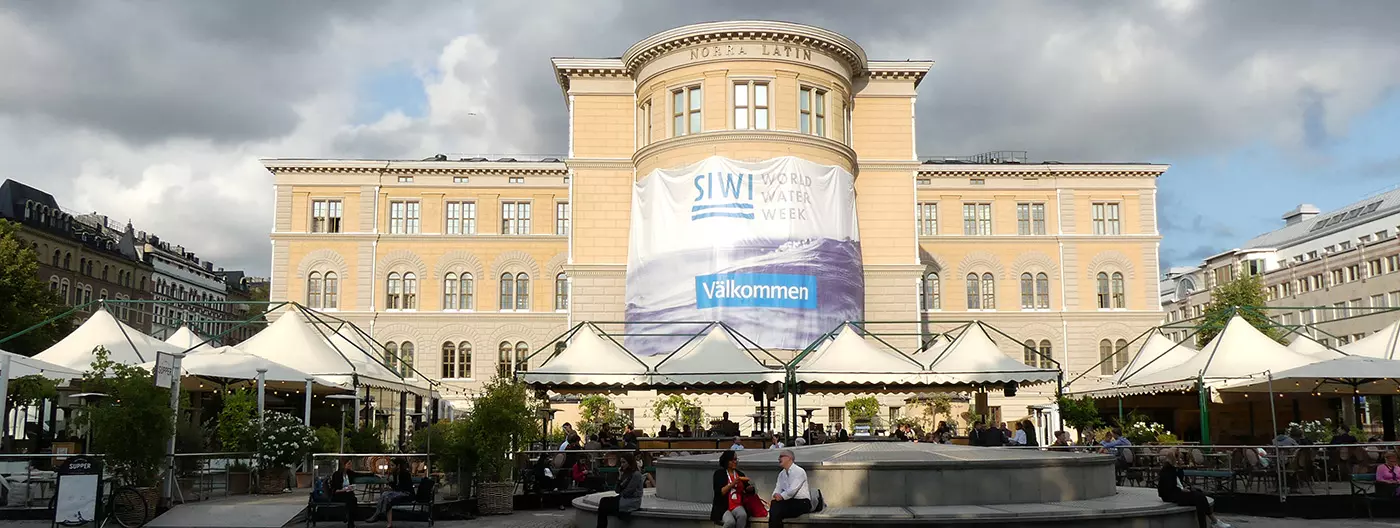
Natural ecosystems are essential in preserving the quantity and quality of the freshwater needed for developing territories. Wherever it operates Veolia is mindful to propose and deploy solutions that respect natural ecosystems, such as wetlands and floodplains.
Using natural ecosystems to protect water resources
Eric Lesueur, CEO of Veolia’s 2EI subsidiary, and the NGO Nature Conservancy* presented green infrastructure performance that protect water resources. For example:
► In France, the Grand Lyon urban area has chosen to have its water catchment area classified as a biodiversity reserve in the heart of the urban environment.
► In Mexico, the city of Aguascalientes and The Nature Conservancy aim to protect the quantity and quality its drinking water resource.
► Near Beijing, China, where environmental standards are very strict, Veolia has built new wastewater treatment plants for the petrochemical giant Sinopec which processes 10 million metric tons of crude oil a year. At the heart of this site, a 9-hectare wetland open to the public completes the facilities for the final treatment of wastewater (1,600 m3 of water / h).
*The mission of the NGO The Nature Conservancy is to protect terrestrial and aquatic ecosystems
Innovative solutions to ensure universal access to drinking water and sanitation
► In Tangier in Morocco, Veolia has set up a special water and energy pricing system that supports a self-financing model for water, sanitation and electricity facilities and at the same time protects the environment.
► Veolia and the Toilet Board Coalition are working to deploy decentralized solutions that complement existing mechanisms for developing access to toilets and improving the performance of centralized systems.
SIWI SOFA Jean-Michel Tiberi: "A ‘new grid’ approach to Sanitation & SDG6.2"
► In Durban South Africa, Veolia recycles 98% of the city's wastewater to supply the local industry’s production processes. Recycling water reduces the rate at which water is withdrawn from the natural environment: every day an additional 40,000 m3 of drinking water is therefore available to the city’s inhabitants – the equivalent of 13 Olympic swimming pools.
Increasing the resilience of vital city infrastructure
Veolia also works alongside communities to help them increase the resilience of their vital infrastructure, in particular water, to natural disasters. Johann Clere, Veolia's Strategic Partnerships Director, Research and Innovation, presented the actions implemented for the city of New Orleans, which is particularly exposed to hurricanes and rising sea levels. After analysing the city’s vital installations, Veolia suggested a targeted action plan to improve resilience through comprehensive risk management, optimizing prevention costs, reducing economic and social losses, and accelerating recovery.
More :
> Water differently in a changing world
> World Water Week
> Veolia presents its solutions to fight sea and ocean pollution at World Oceans Day (8 June 2018)
> Resilient cities: making cities more resistant to impacts and risks
> World Water Day 2018: Veolia takes inspiration from nature when “resourcing the world” (22 March 2018)
> Veolia’s water management expertise
> The NGO The Nature Conservancy
> Thestart-up CityTaps
> Toilet Board Coalition

